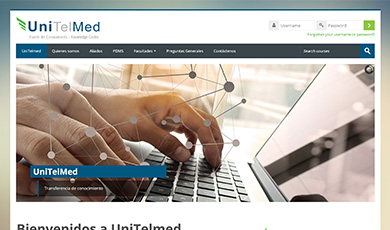It is the digital platform used by the PDMS to facilitate the entire training process. We consider that one of the keys to success for the proper functioning of telemedicine is the permanent transfer of knowledge.
This is the reason why HTI has enabled the UniTelMed platform where all our clients have access not only to PDMS training courses, but also to a source of information, shared and fed by the experiences and knowledge of all our clients




